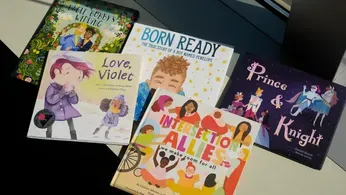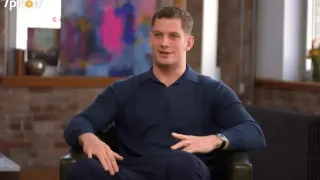
Jun 27
Supreme Court Says Maryland Parents can Pull their Kids from Public School Lessons Using LGBTQ+ Books
Mark Sherman READ TIME: 2 MIN.
The Supreme Court ruled on Friday that Maryland parents who have religious objections can pull their children from public school lessons using LGBTQ storybooks.
The justices reversed lower-court rulings in favor of the Montgomery County school system in suburban Washington. The high court ruled that the schools likely could not require elementary school children to sit through lessons involving the books if parents expressed religious objections to the material.
The decision was not a final ruling in the case, but the justices strongly suggested that the parents will win in the end.
The court ruled that policies like the one at issue in the case are subjected to the strictest level of review, nearly always dooming them.
The school district introduced the storybooks, including "Prince & Knight" and "Uncle Bobby's Wedding," in 2022 as part of an effort to better reflect the district's diversity. In "Uncle Bobby's Wedding," a niece worries that her uncle won't have as much time for her after he gets married to another man.
The justices have repeatedly endorsed claims of religious discrimination in recent years and the case is among several religious-rights cases at the court this term. The decision also comes amid increases in recent years in books being banned from public school and public libraries.
Many of the removals were organized by Moms for Liberty and other conservative organizations that advocate for more parental input over what books are available to students. Soon after President Donald Trump, a Republican, took office in January, the Education Department called the book bans a "hoax" and dismissed 11 complaints that had been filed under Trump's predecessor, President Joe Biden, a Democrat.
The writers' group Pen America said in a court filing in the Maryland case that the objecting parents wanted "a constitutionally suspect book ban by another name." Pen America reported more than 10,000 books were banned in the last school year.
Parents initially had been allowed to opt their children out of the lessons for religious and other reasons, but the school board reversed course a year later, prompting protests and eventually a lawsuit.
At arguments in April, a lawyer for the school district told the justices that the "opt outs" had become disruptive. Sex education is the only area of instruction in Montgomery schools that students can be excused from, lawyer Alan Schoenfeld said.
The case hit unusually close to home, as three justices live in the county, though they didn't send their children to public schools.
___
Follow the AP's coverage of the U.S. Supreme Court at https://apnews.com/hub/us-supreme-court.






